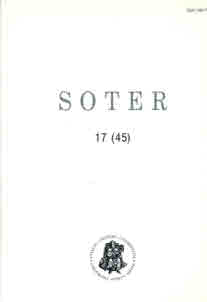Fenomenologijos natūralizacija
Naturalization of phenomenology
Author(s): Gediminas KaroblisSubject(s): Christian Theology and Religion
Published by: Vytauto Didžiojo Universitetas
Summary/Abstract: This article investigates the problem of naturalization of phenomenology, i.e. the problem of coordination of the first- and the third-person approaches in scientific inquiry. Contemporary classification of sciences is established on the basis of modern science tradition and recent trends in modern science. Five domains are distinguished in Lithuania: Humanities, Social sciences, Physical sciences, Biomedical sciences, Technological sciences. Nevertheless, this structure could and should be questioned philosophically and practically, looking for clarification, marginalities and alternatives. Referring to the main ideas of phenomenology, the first argument follows: the fields of scientific research are established not only as “object-fields”, but also as “intentional-fields”, including not only the object, but also the mode of approach to the object. Referring to the main ideas of structural semantics, the second argument follows: an already established intentional field develops by the means of involutionary differentiation. Therefore it is possible to distinguish intentionally established fields of differentiation (see 1 diagram) that are relevant for theoretical discussion of the classification of sciences, and also for practical aims of creating scientific interfaces and creation of multidisplinary teams. The recent project of naturalizing phenomenology formulated by multidisciplinary group of scientists is based on the idea of the interfaces between the fields of experiential and physical (including biomedical) or behavioural differentiation. In phenomenological sense, to naturalize means to switch to natural attitude. As Zahavi pointed it means to leave the attitude which keeps in transcendental phenomenology and keep to phenomenological descriptive psychology. And for phenomenology it means to be naturalized in cognitive science. Here I suggest the reflection on genesis of third-person approach: it may be called the phenomenology of a level – technical instrument by the means of which we could say if the wall is upright or not. My conclusion from this reflection – to look for a solution in a way that would leave the weight of argumentation in phenomenological domain and wouldn‘t dissolve phenomenology in the field of natural sciences.
Journal: SOTER: religijos mokslo žurnalas
- Issue Year: 45/2006
- Issue No: 17
- Page Range: 27-38
- Page Count: 12
- Language: Lithuanian

